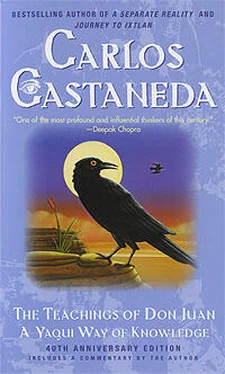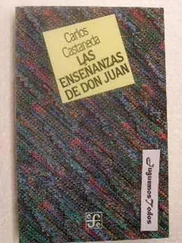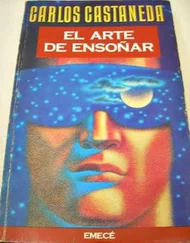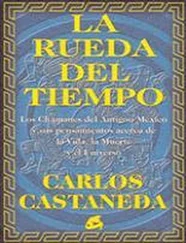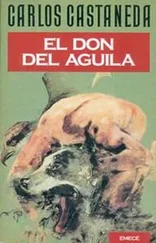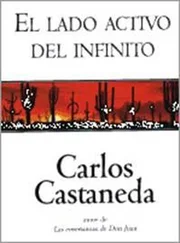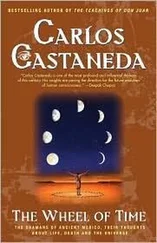For Don Juan and for the two persons who shared his sense of magical time with me
This book is both ethnography and allegory.
Carlos Castaneda, under the tutelage of Don Juan, takes us through that moment of twilight, through that crack in the universe between daylight and dark into a world not merely other than our own, but of an entirely different order of reality. To reach it he had the aid of mescalito, yerba del cliablo, and humito — peyote, datura, and mushrooms. But this is no mere recounting of hallucinatory experience, for Don Juan's subtle manipulations have guided the traveler while his interpretations give meaning to the events that we, through the sorcerer's apprentice, have the opportunity to experience.
Anthropology has taught us that the world is differently defined in different places. It is not only that people have different customs; it is not only that people believe in different gods and expect different post-mortem fates. It is, rather, that the worlds of different peoples have different shapes. The very metaphysical presuppositions differ: space does not conform to Euclidean geometry, time does not form a continuous unidirectional flow, causation does not conform to Aristotelian logic, man is not differentiated from non-man or life from death, as in our world. We know something of the shape of these other worlds from the logic of native languages and from myths and ceremonies, as recorded by anthropologists. Don Juan has shown us glimpses of the world of Yaqui sorcerer, and because we see it under the influence of hallucinogenic substances, we apprehend it with a reality that is utterly different from those other sources. This is the special virtue of this work.
Castaneda rightly asserts that this world, for all its differences of perception, has its own inner logic. He has tried to explain it from inside, as it were — from within his own rich and intensely personal experiences while under Don Juan's tutelage — rather then to examine it in terms of our logic. That he cannot entirely succeed in this is a limitation that our culture and our own language place on perception, rather than his personal limitation; yet in his efforts he bridges for us the world of a Yaqui sorcerer with our own, the world of non-ordinary reality with the world of ordinary reality.
The central importance of entering into worlds other then our own — and hence of anthropology itself — lies in the fact that the experience leads us to understand that our own world is also a cultural construct. By experiencing other worlds, then, we see our own for what it is and are thereby enabled also to see fleet— ingly what the real world, the one between our own cultural construct and those other worlds, must in fact be like. Hence the allegory, as well as the ethnography. The wisdom and poetry of Don Juan, and the skill and poetry of his scribe, give us a vision both of ourselves and of reality. As in all proper allegory, what one sees lies with the beholder, and needs no exegesis here.
Carlos Castaneda's interviews with Don Juan were initiated while he was a student of anthropology at the University of California, Los Angeles. We are indebted to him for his patience, his courage, and his perspicacity in seeking out and facing the challenge of his dual apprenticeship, and in reporting to us the details of his experiences. In this work he demonstrates the essential skill of good ethnography — the capacity to enter into an alien world. I believe he has found a path with heart.
Walter Goldschmidt
I wish to express profound gratitude to Professor Clement Meig— han, who started and set the course of my anthropological field— work; to Professor Harold Garfinkel, who gave me the model and spirit of exhaustive inquiry; to Professor Robert Edger— ton, who criticized my work from its beginning; to Professors William Bright and Pedro Carrasco for their criticism and encouragement; and to Professor Lawrence Watson for his invaluable help in the clarification of my analysis. Finally, I am grateful to Mrs. Grace Stimson and Mr. F. A. Guilford for their assistance in preparing the manuscript.
Para mi solo recorrer los caminos que tienen corazon, cualquier camino que tenga corazon. Por ahi yo recorro, у la unica praeba que vale es atravesar todo su largo. Y por ahi yo recorro mirando, mirando, sin aliento.
(For me there is only the travelling on paths that have heart, on any path that may have heart. There I travel, and the only worth-while challenge is to traverse its full length. And there I travel looking, looking, breathlessly.)
Don Juan
… nothing more can be attempted than to establish the beginning and the direction of an infinitely long road. The pretension of any systematic and definitive completeness would be, at least, a self-illusion. Perfection can here be obtained by the individual student only in the subjective sense that he communicates everything he has been able to see.
Georg Simmel
In the summer of 1960, while I was an anthropology student at the University of California, Los Angeles, I made several trips to the Southwest to collect information on the medicinal plants used by the Indians of the area. The events I describe here began during one of my trips. I was waiting in a border town for a Greyhound bus talking with a friend who had been my guide and helper in the survey. Suddenly he leaned towards me and whispered that the man, a white-haired old Indian, who was sitting in front of the window was very learned about plants, especially peyote. I asked my friend to introduce me to this man.
My friend greeting him, then went over and shook his hand. After they had talked for a while, my friend signaled me to join them, but immediately left me alone with the old man, not even bothering to introduce us. He was not in the least embarrassed. I told him my name and he said that he was called Juan and that he was at my service. He used the Spanish polite form of address. We shook hands at my initiative and then remained silent for some time. It was not a strained silence, but a quietness, natural and relaxed on both sides. Though his dark face and neck were wrinkled, showing his age, it struck me that his body was agile and muscular.
I then told him that I was interested in obtaining information about medicinal plants. Although in truth I was almost totally ignorant about peyote, I found myself pretending that I knew a great deal, and even suggesting that it might be to his advantage to talk with me. As I rattled on, he nodded slowly and looked at me, but said nothing. I avoided his eyes and we finished by standing, the two of us, in dead silence. Finally, after what seemed a very long time, Don Juan got up and looked out of the window. His bus had come. He said good-bye and left the station.
I was annoyed at having talked nonsense to him, and at being seen through by those remarkable eyes. When my friend returned he tried to console me for my failure to learn anything from Don Juan. He explained that the old man was often silent or noncommittal, but the disturbing effect of this first encounter was not so easily dispelled.
I made a point of finding out where Don Juan lived, and later visited him several times. On each visit I tried to lead him to discuss peyote, but without success. We became, nonetheless, very good friends, and my scientific investigation was forgotten or was at least redirected into channels that were worlds apart from my original intention.
The friend who had introduced me to Don Juan explained later that the old man was not a native of Arizona, where we met, but was a Yaqui Indian from Sonora, Mexico.
Читать дальше
